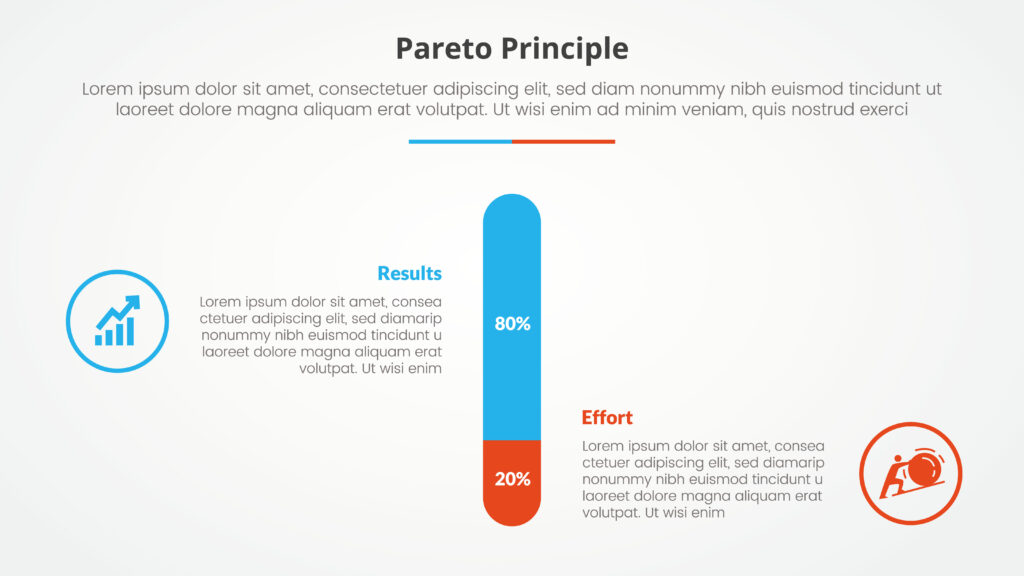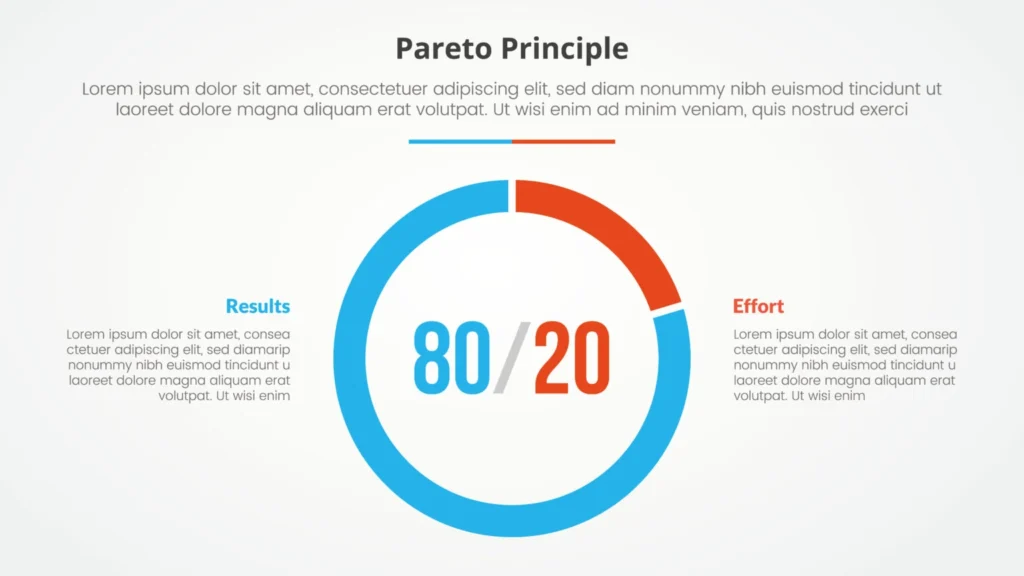How the 80/20 Rule Helps You Ace IELTS Preparation
Diksha sat in the cozy corner of her favorite café, a steaming cup of coffee beside her and a notebook brimming with dreams of studying abroad. She knew the IELTS exam was her golden ticket to gaining admission to universities around the world. But as she flipped through her practice tests, doubts began to surface. How could she improve her writing? Was her speaking polished enough?
Feeling overwhelmed, Diksha realized she needed a smarter approach to her IELTS preparation. Instead of trying to tackle everything at once, she wondered if focusing on the most impactful strategies could help her achieve better results. That’s when she came across the concept of the 80/20 rule—a method that promised to maximize her efforts by prioritizing what truly mattered. Intrigued, she decided to explore how this principle could transform her study routine and help her target the key areas that would make the biggest difference in her band score.
The 80/20 rule (also known as the Pareto Principle) states that 80% of results come from 20% of efforts. When applied to IELTS preparation, this means focusing on the most impactful activities that will yield the greatest improvement in your band score with the least amount of time and effort. Here’s how you can apply the 80/20 rule to each section of the IELTS test to maximize your results.
The 80/20 Rule for IELTS Success: Maximize Your Score with Minimal Effort
Listening: Focus on Common Question Types
80/20 Approach: Spend 80% of your listening practice on the most common question types that appear in the IELTS Listening test: multiple choice, sentence completion, and form/note/table completion. These question types make up the majority of the test, so mastering them will give you the biggest payoff.
How to Do It:
● Practice multiple-choice questions regularly. They often require listening for specific information and distinguishing between similar-sounding answers.
● Focus on sentence completion where you’ll need to catch key words or numbers in the audio.
● Listen actively by predicting answers based on the question before the audio starts.
Pro Tip: Use IELTS practice tests that provide audio transcripts so you can check exactly where you went wrong and improve your listening strategy.
Speaking: Perfect Your Fluency and Coherence
80/20 Approach: 80% of your Speaking score comes from fluency, coherence, and vocabulary. These three areas are what the examiner will listen for most in all parts of the Speaking test. Focus your preparation on expressing ideas smoothly and logically, rather than stressing over grammar or accent perfection.
How to Do It:
● Part 2 (the long turn) is the most important section to practice. Work on organizing your thoughts quickly and speaking for 1-2 minutes without long pauses.
● Use linking words like “however,” “on the other hand,” and “as a result” to sound more fluent and logical.
● Practice speaking on common IELTS topics (e.g., hobbies, education, technology). The more familiar you are with these, the easier it is to maintain fluency.
Pro Tip: Don’t overcomplicate your vocabulary—use words you’re comfortable with. It’s better to speak simply and clearly than to struggle with complex terms.
Reading: Master Skimming and Scanning
80/20 Approach: The most valuable reading techniques — skimming and scanning — will save you 80% of your time during the Reading test. These strategies allow you to quickly locate answers without reading every word.
How to Do It:
● Skim the passage in 2-3 minutes to get the main idea and overall structure.
● Scan the text for specific information related to the questions (e.g., names, dates, numbers).
● Focus on common question types like matching headings to paragraphs and True/False/Not Given — these often account for a large portion of the test.
Pro Tip: Spend no more than 20 minutes on each passage. If a question is too difficult, move on and come back later.
Writing: Focus on Task 2
80/20 Approach: Task 2 is worth twice as many points as Task 1 in the Writing section, so it should receive 80% of your attention. Mastering the essay format and structure is the most efficient way to boost your writing score.
How to Do It:
● Spend 40 minutes on Task 2 (and only 20 minutes on Task 1). Write a clear introduction, 2-3 body paragraphs, and a conclusion.
● Plan before you write: Spend 5 minutes outlining your essay to ensure logical progression and clear argumentation.
● Practice common IELTS essay types such as opinion essays, problem-solution essays, and advantages-disadvantages essays.
Pro Tip: Make sure your essay is well-structured with clear topic sentences and cohesive devices (e.g., “Firstly,” “Moreover,” “In conclusion”).

General 80/20 Strategies for IELTS Preparation
1. Focus on Weaknesses: Identify your biggest weak spots (whether it’s reading, speaking, or listening) and dedicate 80% of your study time to improving those areas. You’ll see faster progress by addressing your weaknesses than by practicing what you’re already good at.
2. Use Official Practice Tests: Not all practice materials are created equal. Invest in official IELTS practice tests (like those from Cambridge IELTS) that mimic the real test format. These give you the most realistic experience and allow you to familiarize yourself with test patterns and timing.
3. Time Management: Focus on timing your practice sessions to simulate real test conditions. For example, practice answering reading questions under timed conditions (20 minutes per passage) or writing essays within the 60-minute time frame.
Study Smarter, Not Harder
Applying the 80/20 rule to your IELTS preparation means focusing on what truly matters. Instead of trying to master every aspect of the test, concentrate on the high-impact areas—common question types, key skills, and efficient strategies—that will give you the biggest score boost.
By targeting 20% of the key areas that influence 80% of your performance, you’ll save time, reduce stress, and see real improvements in your IELTS score. Ready to ace it? Start by focusing on the most effective practices today!
In the journey to success, the choice to study smarter, not harder, is a game-changer. By embracing the 80/20 rule, you’re not just preparing for the IELTS—you’re honing a life skill that prioritizes efficiency over exhaustion. With the right focus and strategies, every effort counts, every step feels purposeful, and every milestone brings you closer to your dream. Like the determined student revisiting her teacher’s advice, the tools and resources you need are within reach. Open the door to smarter preparation today, and let your aspirations take flight—one calculated step at a time.

